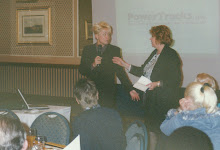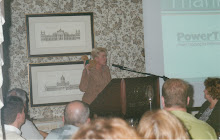I’m often struck by how much energy one person will put into their thoughts of doom and gloom and then watch how doom and gloom are repeatedly manifested in their lives. At the same time, and under the same life conditions, another person will see only the best that life has to offer and those expressions are realized and without any other rationale as to why these things should come to pass except they believe they should; no evidence to support their thoughts, just the belief that good things will happen to them.
Why, then, if the key to getting what you want is rooted only in your belief you should have what you want, more people don’t believe?
One reason is likely that many of us live with falsehoods told to us by others; falsehoods told not out of maliciousness but of beliefs ingrained by others. When the bad invariably happens because we have always believed they will, we then have the evidence to support that the belief was, in fact, true and, since it happened to us, we can now confidently pass this “truth” onto others. However, the counter is also true.
Many years ago, I took a commission-only sales job with a company that just felt right despite there not being a set salary. I asked a new colleague what I could reasonably expect to earn in my first year. She said I would earn $80,000/year without breaking a sweat as she had done in her first year. In less than 6 months, I was earning more than $9,000/month and having a fabulous time. At my former employer, I was earning $36,000/year and everyday was a struggle.
Did I learn some new sales techniques, have a better product to sell, or did the company do a better job of promoting itself than my former employer? Nope. We sold the same products, I managed customers in the same way, and the company did not do any more or any less promoting than my former employer. The difference was that $80,000 per year was the new starting point. I could no longer see $36,000/year as being realistic earnings and from that, everything flowed. Whatever was needed – contacts, introductions, meetings – to produce this outcome was materialized. I can offer no other explanation as to why this happened except that I was told I would earn a minimum of $80,000 per year and to do that, other things had to happen and they did. It was pure belief the goal would be achieved.
We are shackled by the falsehoods of others. Their limitations, their beliefs, and their worries are passed onto others as “truths” with their poor outcomes proof of what is not possible. Often this is because they don’t feel they are worthy of what they want. This unworthiness, however, is created by another person’s belief they they, themselves, are not worthy so that this must be the state for most humans. Do you see the pattern? But worth is not founded in some universal lottery where there are winners and losers. Everyone is worthy of achieving whatever they dream possible. The “trick" is in believing whatever you want is already yours. There is nothing more you need to do.
Executive Onboarding Note: The Importance Of The Confidence To Be Open To
Help
-
While executive onboarding, get help. If it’s offered, take it. If it’s not
offered, find it.
The post Executive Onboarding Note: The Importance Of The C...
7 years ago



